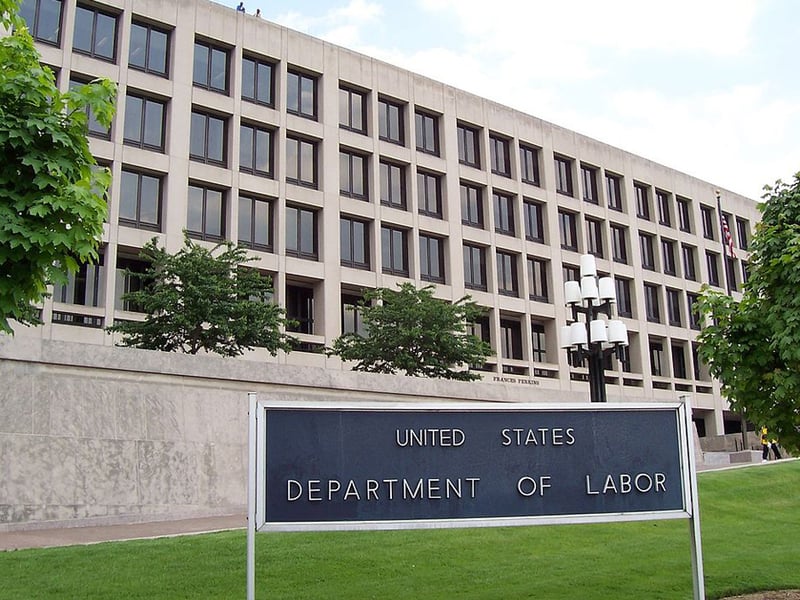

The Department of Labor is about to make a huge misstep by tamping down on ESG investments in 401(k) plans, hundreds of commenters told the regulator this week.
The measure has attracted as massive amount of attention. As of Friday, the DOL reported receiving more than 1,500 public comments, about 600 of which were posted to its website. That makes it among the most commented-on issue the agency has raised.
Thursday marked the end of a public comment period for the proposed rule to restrict the use of investments with environmental, social and governance criteria in defined-contribution plans.
The proposal would not only have negative consequences for retirement savers and environmental and social causes, but it could also prompt a new wave of retirement-plan litigation and set a bad precedent internationally for ESG investing, commenters wrote.
But proponents of further restrictions on ESG use within DC plans wrote that fiduciaries have no business using retirement plans to further environmental and social causes.
[Interested in even more ESG news? Check out InvestmentNews’ ESG Clarity US]
The rule would mandate that plan fiduciaries only consider pecuniary factors when selecting investment options, and it would prevent ESG-specific investments from being used as qualified default investment options, which are generally the most-used investments within 401(k)s.
Numerous trade and lobbying groups, investment firms, advocacy organizations and government groups weighed in, with many expressing concern about the proposed rule, if not asking the DOL to withdraw it entirely.
“By suggesting that fiduciaries would be required to make comparisons each time they make decisions regarding plan investments, the Proposed Rule is inconsistent with prior DOL guidance and court interpretations, and would expose fiduciaries to increased uncertainty, litigation risk and costs,” a comment letter from law firm Goodwin Proctor read.
The proposed rule “conflat[es] the duty of loyalty with the duty of prudence,” contrary to how courts have viewed the Employee Retirement Income Security Act, according to the Goodwin Proctor letter. “Moreover, because these aspects of the proposed rule would apply to all fiduciary decision-making regarding investments across all types of ERISA-governed employee benefit plans, not just fiduciaries who utilize or consider utilizing ESG Funds, these consequences will be felt far beyond the circumstances that are the apparent focus of the proposed rule.”
Even Australia said it is worried.
“The proposal mischaracterises ESG integration and could provide a poor precedent internationally,” the Australian Council of Superannuation Investors wrote. That is, “in part due to unclear wording … including a failure to distinguish between ESG integration and economically targeted investing … investments that aim to provide financial returns as well as collateral, non-financial benefits.”
Many also asked for an extension to the 30-day comment period.
A group of financial services industry trade and lobbying groups, including the American Bankers Association, Defined Contribution Institutional Investment Association, Insured Retirement Institute, Investment Adviser Association, Investment Company Institute, Securities Industry and Financial Markets Association and Spark Institute asked for a 30-day extension.
“The proposal, as currently drafted, would make sweeping changes to current rules,” the groups wrote. “It would not only make substantial changes to the application of ERISA to investments that incorporate ESG factors, but the changes made to the investment duties regulation also would have extensive impacts far beyond ESG investments.”
In individual letters, some of those groups expressed concerns about the proposal in theory. The IRI, for example, asked the DOL to withdraw it.
Numerous investment-management firms also weighed in. The financial services industry has taken immense interest in ESG investing over the past few years, and managers have quickly rolled out products. Their view, increasingly, is that ESG criteria are not emotionally based and, rather, are being used to improve long-term performance.
“The proposed rule is attempting to solve a problem that does not exist,” T. Rowe Price’s letter read. It would discourage “fiduciaries from taking into account ESG factors that should be considered, imposes unnecessary burdens on investment decisions including those involving ESG and requires defined contribution plan fiduciaries to disregard considerations that are important to participants’ future financial security.”
It would also inadvertently result in increased litigation, T. Rowe Price wrote.
Members of Congress took different positions on the proposal, with democrats strongly opposing it and republicans voicing support for it overall.
The DOL received two letters from the House Committee on Education and Labor. In the Democratic majority comment letter, representatives said the DOL did not provide “a data driven-rationale” nor “a rigorous economic analysis.”
“The DOL is undermining workers’ ability to invest in a way that reflects their values without sacrificing financial returns,” the letter read.
The letter from the Republican minority struck a different tone.
“Under ERISA, a fiduciary’s duty of loyalty prohibits them from prioritizing political agendas or social policy preferences over the financial security of America’s workers,” that letter stated. “Plan investments that sacrifice return or assume additional risk to further non-financial goals at the expense of workers’ retirement security are simply unacceptable.”
Some organizations whose members could be affected by an increase in ESG investing, including a gun interest group, also support the DOL’s proposed rule. The National Shooting Sports Foundation, for example, alluded to “systemic efforts in recent years to use pension plan investments to achieve non-financial objectives.”
“Retirement plans are not appropriate vehicles for furthering social or policy goals that are not in the interest of the beneficiaries,” the group wrote.

Relationships are key to our business but advisors are often slow to engage in specific activities designed to foster them.

Whichever path you go down, act now while you're still in control.

Pro-bitcoin professionals, however, say the cryptocurrency has ushered in change.

“LPL has evolved significantly over the last decade and still wants to scale up,” says one industry executive.

Survey findings from the Nationwide Retirement Institute offers pearls of planning wisdom from 60- to 65-year-olds, as well as insights into concerns.
Streamline your outreach with Aidentified's AI-driven solutions
This season’s market volatility: Positioning for rate relief, income growth and the AI rebound
